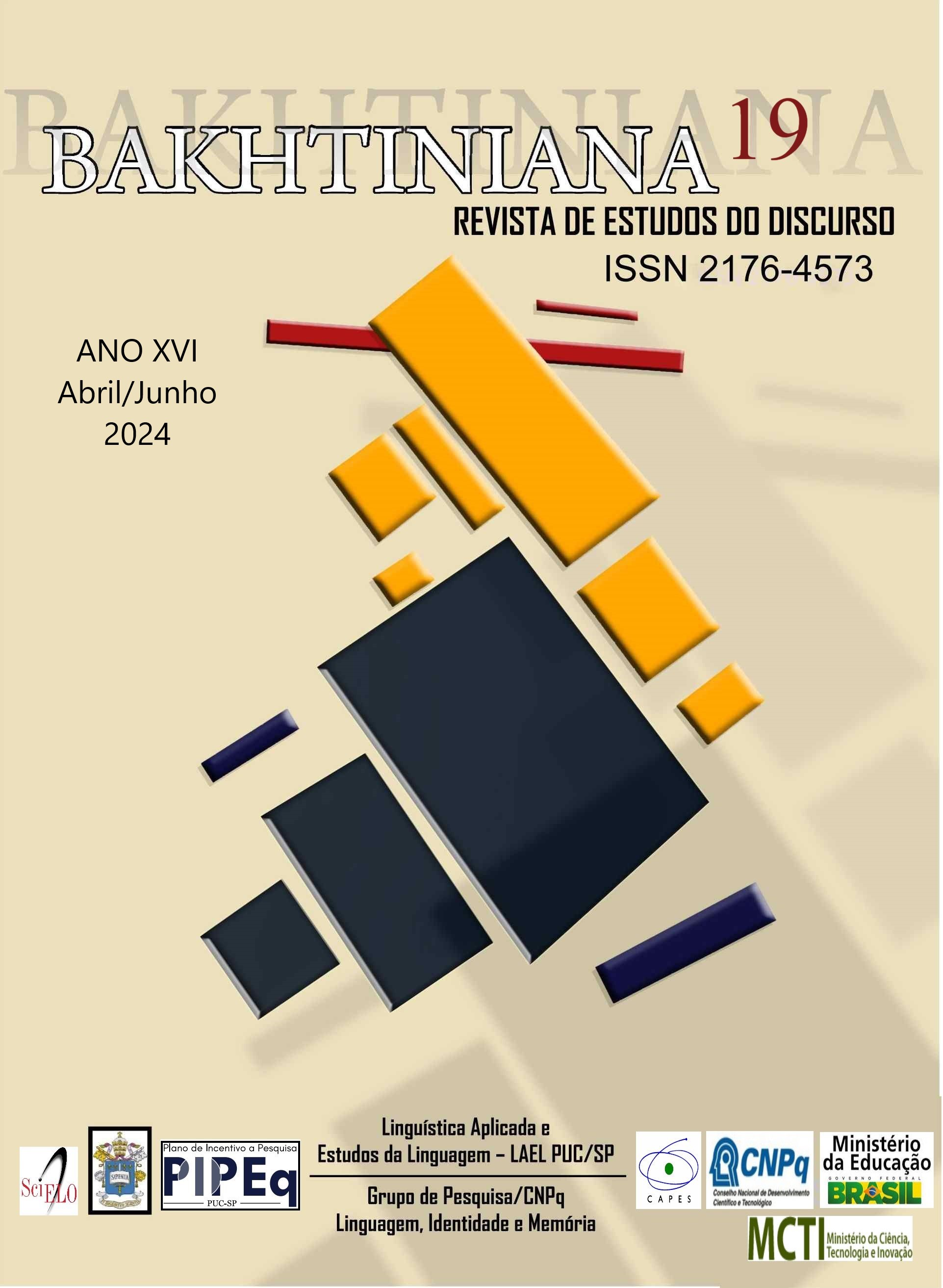Polifonia de vozes não guiadas: uma leitura bakhtiniana de O caçador de pipas de Hosseini
Palavras-chave:
Bakhtin, Polifonia, Khaled Hosseini, O caçador de pipasResumo
Mikhail Bakhtin, filósofo Russo, nos forneceu uma variedade de conceitos para apreciar e analisar um romance. Este estudo é uma tentativa de explorar os níveis mais profundos do romance O caçador de pipas, de Khaled Hosseini, usando a ferramenta intelectual bakhtiniana da polifonia. Afirmamos que o romance é polifônico, pois está repleto de vozes de inúmeros personagens, e seu enquadramento narrativo acentua ainda mais essa diversidade de perspectivas. O romance desafia a sabedoria convencional que afirma que o autor ou narrador sempre tem a última palavra. Embora a voz do narrador vacile e tropece em muitas cenas confusas, as vozes de alguns personagens emergem e permanecem firmes em alguns casos. Este artigo oferecerá uma exposição e análise metódica do livro O caçador de pipas sob a perspectiva do Bakhtinismo, a fim de reconhecer o estilo antiautoral que celebra o pluralismo (polifonia).
Referências
BAKHTIN, Mikhail. Discourse in the Novel. In: BAKHTIN, Mikhail. The Dialogic Imagination: Four Essays. Transl. Caryl Emerson; Michael Holquist. Austin: University of Texas Press,1981a. pp. 259-422.
BAKHTIN, Mikhail. Forms of Time and of the Chronotope in the Novel. Notes toward a Historical Poetics. In: BAKHTIN, Mikhail. The Dialogic Imagination: Four Essays. Transl. Caryl Emerson; Michael Holquist. Austin: University of Texas Press,1981b. pp. 84-258.
BAKHTIN, Mikhail. Epic and Novel. Toward a Methodology for the Study of the Novel. In: The Dialogic Imagination: Four Essays. Transl. Caryl Emerson; Michael Holquist. Austin: University of Texas Press, 1981c. pp. 30-83.
BAKHTIN, M. Problems of Dostoevsky’s Poetics. Edited and translated by Caryl Emerson; introduction by Wayne C. Booth. Minneapolis: University of Minnesota Press, 1984.
ARAÚJO, Nádia Barros de; ARAÚJO, André Luis de. “The Heterodiscursivity in Fantastic Narratives of Social Tradition”. Bakhtiniana. Revista de Estudos do Discurso, vol. 18, no. 1, Dec. 2022, pp. Port. 87-111 / Eng. 84, https://revistas. pucsp. br/index. php/bakhtiniana/article/view/58248. Accessed on 15 July, 2023.
BEAUVOIR, Simone de. The Second Sex. Vintage Classics, London, 2015.
BUTLER, Judith. Gender Trouble. Routledge, 2006.
DENTITH , Simon. Bakhtinian Thought: An Introductory Reader. Routledge, 1995.
DU, Juan. (2017). A Journey of Self-Actualization of Amir in The Kite Runner. English Language and Literature Studies. http://dx.doi.org/10.5539/ells.v7n3p90. Accessed on 25 October, 2023.
HOOKS, Bell. Understanding Patriarchy. In: HOOKS, Bell. The Will to Change: Men, Masculinity and Love. Washington Square Press, 2004. pp. 28-42.
HOSSEINI, Khaled. The Kite Runner. Bloomsburry Publishing, London, 2007 (Print).
MORSON, Gary Saul; CARYL Emerson. Mikhail Bakhtin: Creation of a Prosaics. Stanford University Press, 1990.
O’BRIEN, S. Translating Trauma in Khaled Hosseini’s The Kite Runner. In: O’ Brien, Trauma and Fictions of the “War on Terror,” Routledge, 2021. pp. 36–66. https://doi.org/10.4324/9781003172215-1-2. Accessed on 25 October, 2023.
PRAISE for The Kite Runner. Princeton Book Review. n.d. https://www.princetonbookreview.com/book_pages/discussion/kite-runner-praise.php. Accessed on 28 January, 2024.
SHUBHI; VIKASH, Sneha; RACHNA; SHAHLA Rehana. Does Hosseini Portray Western-Centric View of Afghanistan in His Novels? Explore-Journal of Research, vol. XI no.2., 2019, pp. 1-7, https://patnawomenscollege.in/upload/Explore%20vol%20XI%202/detal/d1-min.pdf. Accessed on 25 October, 2023.
VOLOŠINOV, V. Marxism and the Philosophy of Language. Translated by Ladislav Matejka and I. R. Titunik. Cambridge, MA: Harvard University Press, 1986.
Downloads
Publicado
Como Citar
Edição
Seção
Licença
Copyright (c) 2024 Bakhtiniana. Revista de Estudos do Discurso

Este trabalho está licenciado sob uma licença Creative Commons Attribution 4.0 International License. Os autores concedem à revista todos os direitos autorais referentes aos trabalhos publicados. Os conceitos emitidos em artigos assinados são de absoluta e exclusiva responsabilidade de seus autores.








